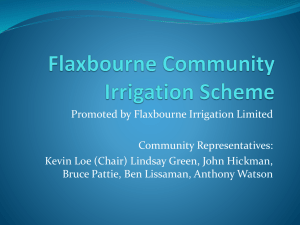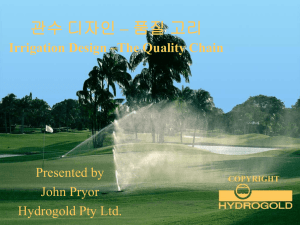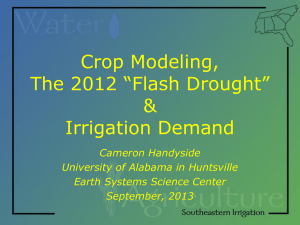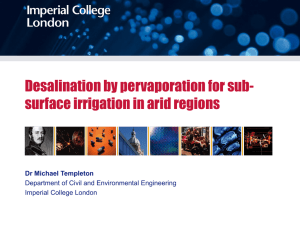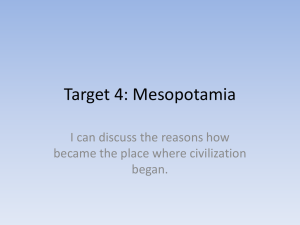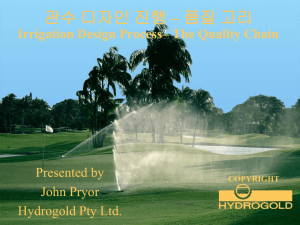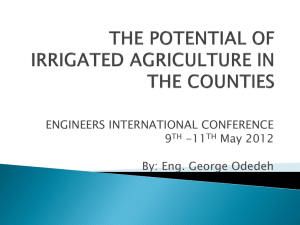Course: Principles of irrigation Course id: 7MGB9I10 Number of
advertisement
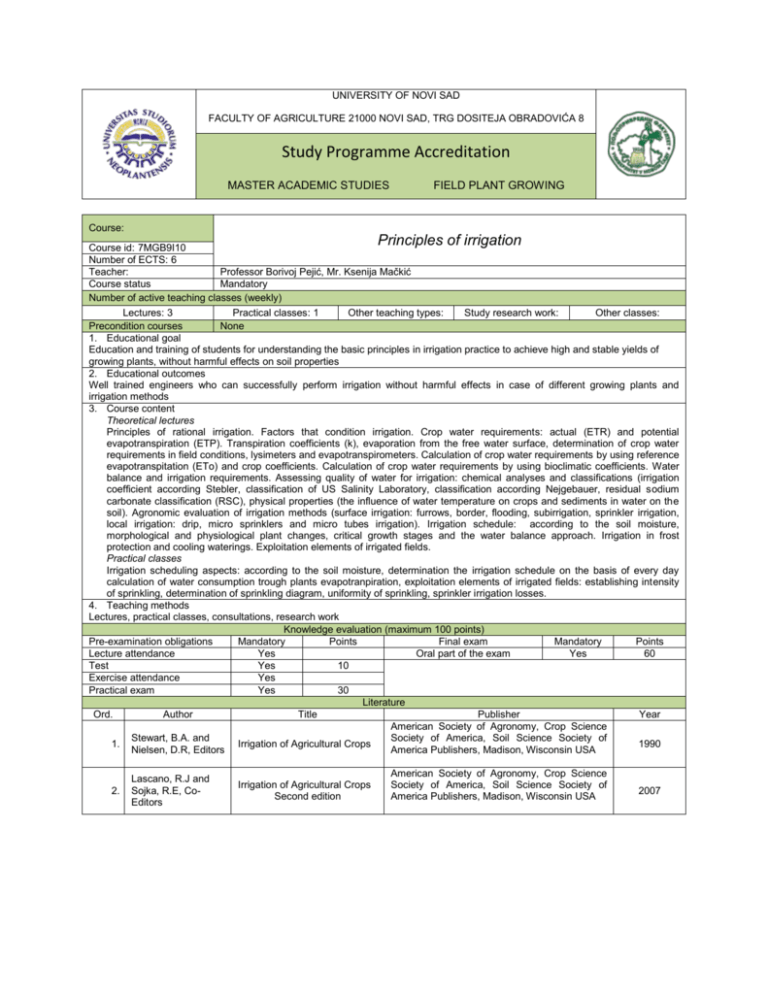
UNIVERSITY OF NOVI SAD FACULTY OF AGRICULTURE 21000 NOVI SAD, TRG DOSITEJA OBRADOVIĆA 8 Study Programme Accreditation MASTER ACADEMIC STUDIES FIELD PLANT GROWING Course: Principles of irrigation Course id: 7MGB9I10 Number of ECTS: 6 Teacher: Professor Borivoj Pejić, Mr. Ksenija Mačkić Course status Mandatory Number of active teaching classes (weekly) Lectures: 3 Practical classes: 1 Other teaching types: Study research work: Other classes: Precondition courses None 1. Educational goal Education and training of students for understanding the basic principles in irrigation practice to achieve high and stable yields of growing plants, without harmful effects on soil properties 2. Educational outcomes Well trained engineers who can successfully perform irrigation without harmful effects in case of different growing plants and irrigation methods 3. Course content Theoretical lectures Principles of rational irrigation. Factors that condition irrigation. Crop water requirements: actual (ETR) and potential evapotranspiration (ETP). Transpiration coefficients (k), evaporation from the free water surface, determination of crop water requirements in field conditions, lysimeters and evapotranspirometers. Calculation of crop water requirements by using reference evapotranspitation (ETo) and crop coefficients. Calculation of crop water requirements by using bioclimatic coefficients. Water balance and irrigation requirements. Assessing quality of water for irrigation: chemical analyses and classifications (irrigation coefficient according Stebler, classification of US Salinity Laboratory, classification according Nejgebauer, residual sodium carbonate classification (RSC), physical properties (the influence of water temperature on crops and sediments in water on the soil). Agronomic evaluation of irrigation methods (surface irrigation: furrows, border, flooding, subirrigation, sprinkler irrigation, local irrigation: drip, micro sprinklers and micro tubes irrigation). Irrigation schedule: according to the soil moisture, morphological and physiological plant changes, critical growth stages and the water balance approach. Irrigation in frost protection and cooling waterings. Exploitation elements of irrigated fields. Practical classes Irrigation scheduling aspects: according to the soil moisture, determination the irrigation schedule on the basis of every day calculation of water consumption trough plants evapotranpiration, exploitation elements of irrigated fields: establishing intensity of sprinkling, determination of sprinkling diagram, uniformity of sprinkling, sprinkler irrigation losses. 4. Teaching methods Lectures, practical classes, consultations, research work Knowledge evaluation (maximum 100 points) Pre-examination obligations Mandatory Points Final exam Mandatory Points Lecture attendance Yes Oral part of the exam Yes 60 Test Yes 10 Exercise attendance Yes Practical exam Yes 30 Literature Ord. Author Title Publisher Year American Society of Agronomy, Crop Science Stewart, B.A. and Society of America, Soil Science Society of 1. Irrigation of Agricultural Crops 1990 Nielsen, D.R, Editors America Publishers, Madison, Wisconsin USA 2. Lascano, R.J and Sojka, R.E, CoEditors Irrigation of Agricultural Crops Second edition American Society of Agronomy, Crop Science Society of America, Soil Science Society of America Publishers, Madison, Wisconsin USA 2007
